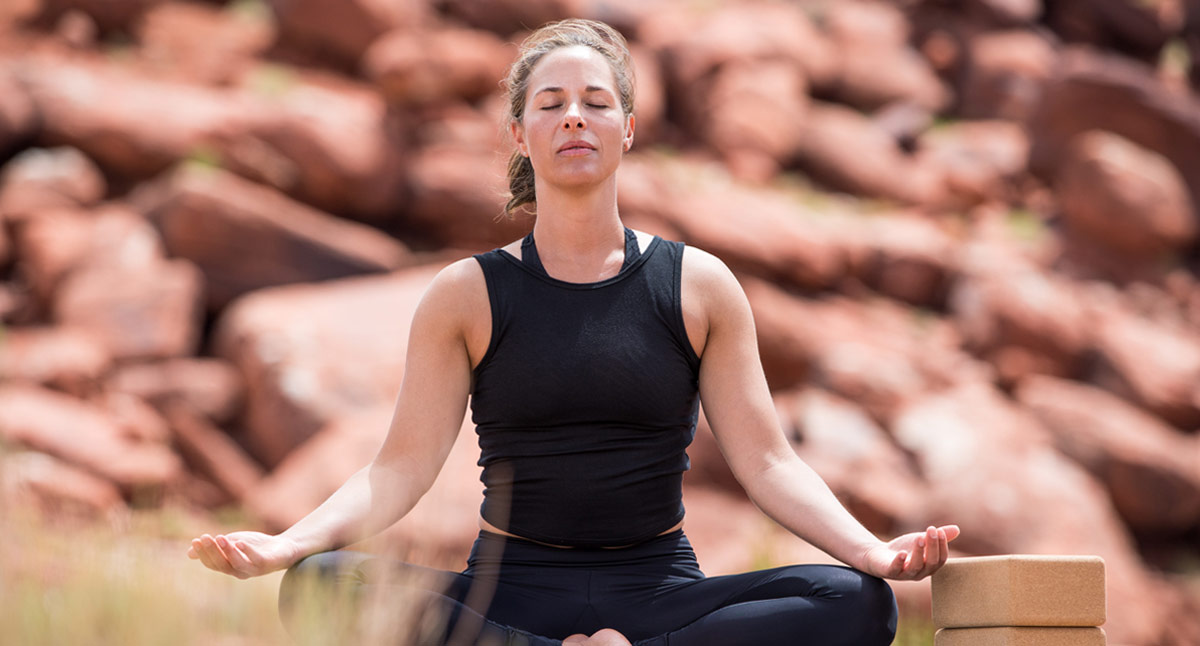
In recent years, our lives seem to have gotten harsher. Our culture has factionalized. No one wants to listen to anyone with whom they disagree. Dialog has become disrespectful.
Social media is partly responsible for this. While I enjoy connecting with friends on Facebook, I sometimes feel a need to stay away. It seems that every single day, another piece of unhappy news comes to the fore. I think it’s important to stay informed, but peace of mind often goes out the window in the process.
Practicing yoga asana and mindfulness meditation can provide a welcome respite from the harshness. Yoga calms the nervous system and creates a state of ease in the body and mind. This is essential.
Yoga helps me survive and stay relatively sane. But can we do more than just survive? Can we, in addition, cultivate empathy and kindness, even in the midst of a harsh environment?
I don’t intend to sound like Pollyanna here, but I think we can do more than just tread water. I believe that we can swim, even though it may seem that we’re heading upstream much of the time. I believe this because I’ve practiced metta meditation since the 1980s.
Metta and the Brahma Viharas
Metta (kindness) is the first of the four brahma viharas (divine abodes) in Buddhist practice. The other three are karuna (compassion), mudita (empathetic joy) and upekha (equanimity). These are states of being that we can cultivate through specific practices. Once we’ve practiced them for a while, they can become a foundation for us. So instead of simply visiting them once in a while, they become our mental/emotional/spiritual home.
Metta is the simple wish for ourselves and for others to be happy. There is no agenda, and there are no expectations of payback or that the person we’re offering our kindness to will actually become happy as a result. It is simply an offering, and in that offering, over time, we begin to cultivate a habit of kindness.
How to Practice Metta
There are many levels to metta and brahma vihara practices. The instructions I share today will apply to all the other posts on this blog that explain different aspects of metta practice.
- Sit in a comfortable position. If sitting in Sukhasana is comfortable for you, feel free to practice in a cross-legged position. Make sure you have the support of a zafu, v-shaped cushion or Zen cushion. It’s also fine to sit in a chair or with your back supported against a wall. It’s important that you be comfortable when practicing metta. It’s hard to generate kind feelings when you’re forcing your body into an uncomfortable position.
- When you are comfortably seated, move your attention to your heart space. You may find it helpful to place a hand over your heart, or to cross your hands over your heart. Relax into the feeling of your heart space.
- Choose an easy being in your life—a child, grandchild, cat, dog, grandparent, etc., and invite that being into your heart space. It’s important that the being you choose is someone with whom you have an uncomplicated, easy relationship.
- The “proximate cause” for the cultivation of metta is to reflect on someone’s positive qualities. So while holding them in your heart, reflect on what you appreciate about this person or animal.
- Metta practice involves the use of phrases to express wishes toward the object of our meditation. I will offer several examples of metta phrases. Feel free to use these or to fashion your own phrases that express similar sentiments. Say these phrases silently while holding the object of your metta (your easy being) in your heart. Spend enough time with each phrase that you can imagine your easy being enjoying what you are wishing for them.
- The first phrase: “May you be safe.” Other examples: “May you be safe and protected from inner and outer harm,” or “May you be free from danger.”
- The second phrase: “May you be happy.” Other examples: “May you be happy and peaceful,” or “May you be contented.”
- The third phrase: “May you be healthy.” Other examples: “May your physical body support you,” or “May you be healthy and strong (or vital).”
- The fourth phrase: “May you live with ease.” Other examples: “May you enjoy the ease of well-being,” or “May you take care of yourself happily while living in this world.” (The latter is the traditional phrase translated from Pali language.)
- Cycle through these phrases for as long as you want, paying attention to whatever feelings arise, and remembering to connect the wishes with the person or animal.
You can practice for 5 minutes or for as long as 45 minutes to an hour. When I’ve done 9-day metta retreats, we practiced all day long—while we were sitting, walking, eating, showering, etc. Recently, I’ve taken to practicing when I wake up in the middle of the night. My normal habit is to worry in the wee hours. I’m trying to change this habit by practicing metta instead.
We don’t always have control over what happens in our environment. The current harshness is a case in point. But we can influence how we respond. This is the power of practicing kindness. Like any other thing we practice, we can get “good” at being kind. When we come from a state of kindness, our experience of the world around us can soften.
